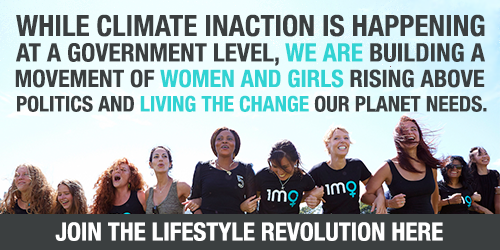Our airways and social media feeds are filled to the brim with the latest lockdown news and home cooking projects. But just because we're not seeing a lot of news around the environment and climate, doesn't mean that the planet is on pause!
Here's a roundup of some exciting news and some important news for our planet:
Commercial whaling in Iceland has stopped for 2020 and maybe forever!
Iceland, one of the three largest whaling countries has signalled that commercial whaling might be over forever. For the second year in a row, Iceland's two whaling companies have announced that they will not hunt any whales - one of the companies has also said they will stop hunting whales permanently. This year, whaling has been stopped due to social distancing measures, the declining market for whale meat, public opinion on whaling and local income from whale watching. The number of people who went on whale watching trips in Iceland grew significantly between 2012 and 2016!
Whales aren't just majestic sea creatures - they also help us repair climate damage. Whales absorb and store carbon and also play an important role in supporting the production of phytoplankton (who produce a large portion of the world's oxygen!).
Cities all over the world are reimagining public spaces
Paris is creating 650 kilometres of cycleways, Milan is dedicating 35 kilometres to walkways and cycleways. Paris' Mayor also promised before the coronavirus that every street in the city would become cycle-friendly by 2024! The plans are being fast-tracked to accommodate post-lockdown travel where walking and cycling are considered safest. In a similar move to make travelling around the city safe for the public, Milan (a city that's only 15 kilometres from end to end), is dedicated 35 kilometres of its city streets to walkways and cycleways. This shows how cities can be reimagined as we emerge from the coronavirus crisis, making urban areas safer for people and the planet.
Across the ocean, New York City has also committed to open up its streets during the crisis, making way for more pedestrian spaces and bike paths. Hopefully, this won't just be temporary!
The coal industry in 2 Australian states uses as much water as all Sydney households!
A recent report by the Australian Conservation Foundation has found that coal mining and coal-fired power plants in New South Wales and Queensland use 383 billion litres of water a year! This is approximately the same amount of water used by Sydney's population of 5.2 million people annually.
Australia's production of black coal comes predominantly from the East Coast. But with differing regulations between states and inconsistent reporting guidelines amongst government bodies, it's quite difficult to find an entirely accurate figure for the total amount of water usage. While there are mandatory reporting guidelines, coal mines are utilising these loopholes and inconsistencies hide their environmental impact. Not to mention the approval for Adani's Carmichael mine granted a licence to extract and use an unlimited amount of groundwater threatening local river systems.
In the renewables space, another report by the Australian Energy Market Operator found that Australia could run a renewable power grid which would account for 75% of electricity if it got the regulations right. If you can't wait till 2025 (we can't), make sure you switch to a bank which doesn't invest in fossil fuel projects.
Scuba diving companies are helping to plant coral along the Great Barrier Reef
Tourism has come to halt but that doesn't mean all scuba companies have closed up - some companies are helping to plant coral in the Great Barrier Reef! Five local reef tour companies in the Australian state of Queensland are taking part in the Coral Nurture Program.
The Coral Nurture Program is a new way of helping the Great Barrier Reef - aiming to buy time to give the reef a fighting chance of surviving climate damage and temperature rise in the ocean as we work to reduce global emissions. Tourism is a key part of the program, helping to communicate the importance of protecting the reef and utilising the knowledge, experience and skills of those in the tourism industry along with the scientists working on the project.
Header Photo by Priscilla Du Preez on Unsplash.

